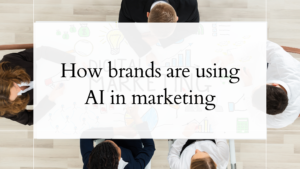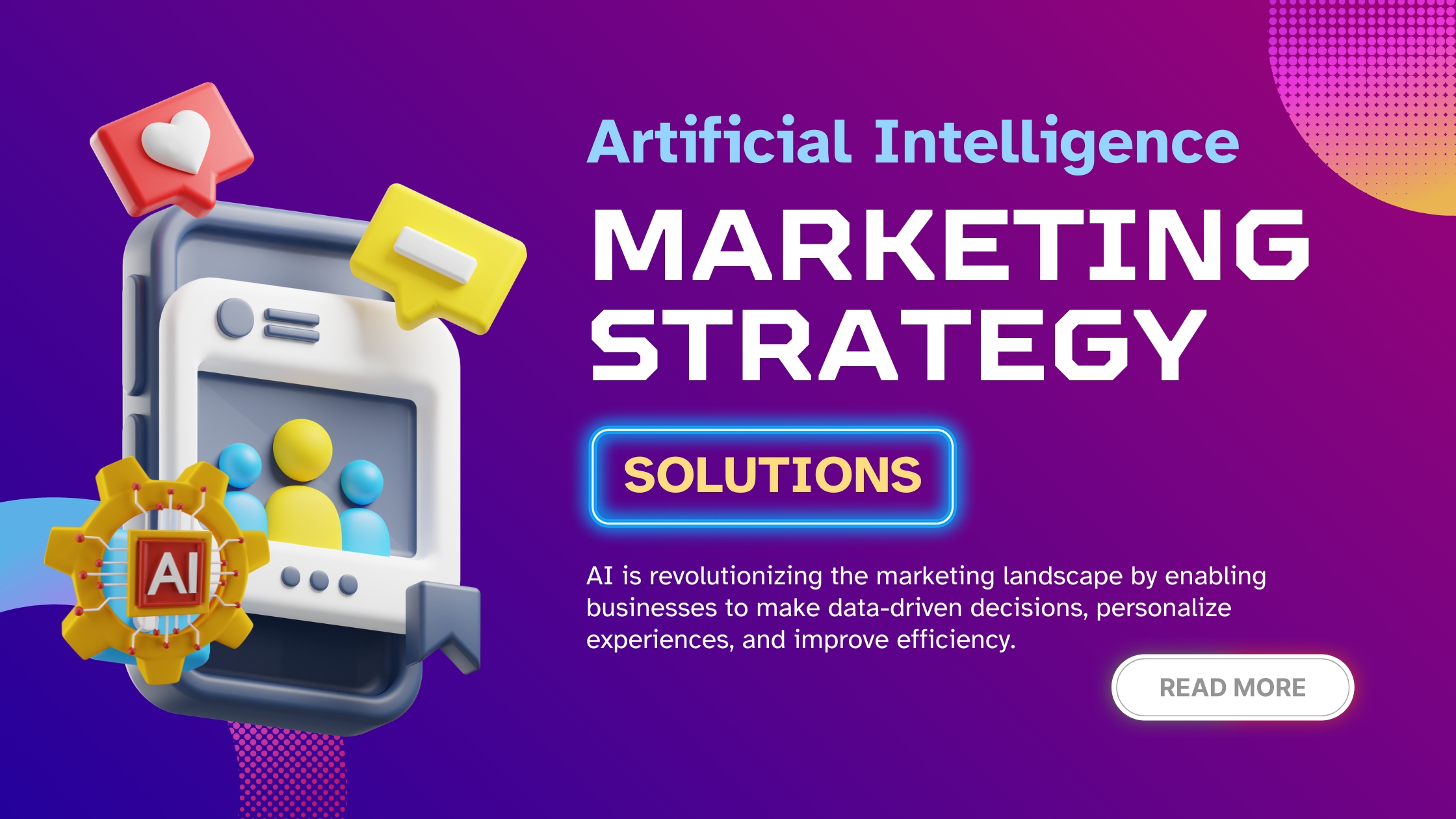AI-Powered Marketing Strategy: How Artificial Intelligence is Transforming Marketing
What is AI-powered marketing? Artificial Intelligence is Transforming Marketing in various ways but first, let’s understand what AI-powered marketing is. AI-powered marketing, also known as artificial intelligence marketing, is the strategic use of AI technologies to enhance marketing efforts. It involves leveraging AI tools and algorithms to analyze data, automate processes, personalize experiences, and gain valuable insights. By incorporating AI into marketing strategies, businesses can make data-driven decisions, improve efficiency, and achieve better results.
How to use AI for marketing strategy
Here are some practical ways to incorporate AI into your marketing strategy:
- Data Analysis and Insights: Use AI tools like Tableau, Rapid Miner, etc. to analyze large datasets, identify trends, and gain deeper insights into customer behavior.
- Personalization: Create personalized marketing campaigns based on individual preferences and behaviors.
- Content Creation: Generate content ideas, write copy, and even design visuals with the help of AI-powered tools like Jasper AI, copy.ai, Synthesia or Canva and lots more.
- Customer Service: Automate customer service tasks, provide instant responses, and improve customer satisfaction with Zoho, Hiver.
- Predictive Analytics: Forecast future trends, predict customer needs, and make proactive marketing decisions with SAP Analytics.
How brands are using AI in marketing

Many brands are already harnessing the power of AI to drive their marketing strategies. With AI-powered marketing Strategy and the knowledge of how Artificial Intelligence is Transforming Marketing, I would suggest a few use cases below:
- Social Media Marketing: AI can help automate tasks, analyze engagement metrics, and identify influencers.
- Email Marketing: AI-powered tools can personalize email campaigns, optimize subject lines, and predict email open rates.
- Search Engine Optimization (SEO): AI can help analyze search trends, optimize website content, and improve search engine rankings.
- Advertising: AI can target ads to specific audiences, personalize ad content, and measure ad performance.
- Customer Relationship Management (CRM): AI can automate CRM processes, provide personalized customer experiences, and improve customer loyalty.
Example of AI in marketing
One of the most prominent examples of AI in marketing is the use of chatbots. Chatbots like Tawk to can engage with customers in real time, provide answers to frequently asked questions, and even assist with purchases. They can be programmed to learn from interactions and improve their responses over time.
What is the role of artificial intelligence in marketing opportunities and challenges?
AI presents both opportunities and challenges for marketers. On the one hand, AI can help businesses improve efficiency, personalize experiences, and gain a competitive edge. On the other hand, AI also raises concerns about data privacy, job displacement, and the potential for misuse.
How to use AI when creating your marketing strategy
To effectively use AI for marketing, it’s essential to:
- Identify your goals: Clearly define what you want to achieve with AI and how it aligns with your overall marketing strategy.
- Choose the right tools: Select AI tools suitable for your specific needs and budget.
- Collect and analyze data: Gather relevant data and use AI to extract valuable insights.
- Experiment and iterate: Continuously test and refine your AI-powered marketing strategies.
Benefits of artificial intelligence in marketing
AI offers several benefits for marketers, including:
- Improved efficiency: Automation of repetitive tasks saves time and resources.
- Enhanced personalization: AI allows for highly targeted and personalized marketing campaigns.
- Data-driven decision-making: AI provides valuable insights to inform strategic decisions.
- Increased customer satisfaction: AI can improve customer experiences and loyalty.
- Competitive advantage: AI can help businesses stay ahead of the competition.
Selling opportunities with artificial intelligence
AI can create more selling opportunities by:
- Identifying potential customers: AI can analyze customer data to identify target audiences and potential leads.
- Personalizing sales pitches: AI can tailor sales messages to individual customers based on their preferences and needs.
- Optimizing sales processes: AI can automate sales tasks, improve sales team productivity, and streamline the sales funnel.
Conclusion
AI is revolutionizing the marketing landscape by enabling businesses to make data-driven decisions, personalize experiences, and improve efficiency. By effectively leveraging AI, marketers can access new opportunities, gain a competitive advantage, and achieve greater success.

